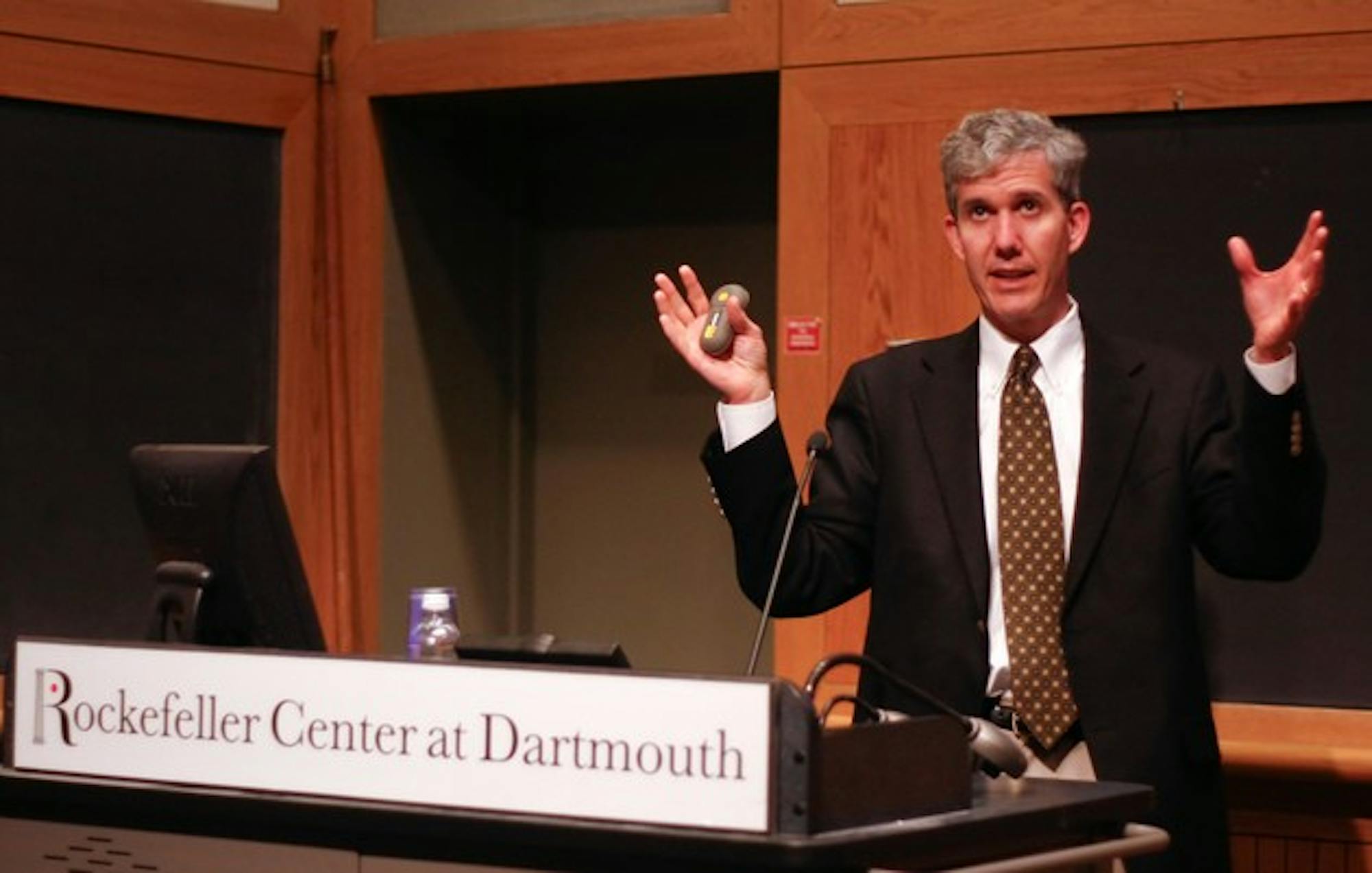Obama has maintained the Bush administration's commitment to free trade, while also pushing for new policies, including agricultural subsidy reform and an end to the trade embargo on Cuba, Irwin said.
"We haven't had radical change," Irwin said. "We've had something very constrained."
Irwin said he believes that the policy changes are moving in the right direction.
The Obama administration has made few announcements about trade issues because it is focusing on other policy fronts, including the economy and health care, Irwin said. Trade policy is also controversial within the Democratic party, Irwin said, pointing to labor unions' opposition to free trade.
"His own party is very skeptical about trade, very divided on trade," Irwin said.
Discussion about trade policy would cost the Obama administration political capital and bring few short-term benefits, he said.
Irwin said he disagrees with free trade opponents who argue that trade deficits -- which occur when more is imported into a country than is exported -- reduce employment. He displayed several graphs showing no correlation between the trade deficit, the U.S.' trade policies and employment rates, instead noting that the trade deficit is tied to the strength of the dollar, and the employment rate to the overall economic cycle.
Irwin provided evidence that the U.S. trade deficit stems from Americans' high consumption and low savings rates. Other developed nations, which generally have high savings and low consumption rates, are financing the U.S. trade deficit, he said.
Mapping mean income against education, Slaughter worked to demonstrate that real wages for Americans without professional degrees have fallen since 2000, despite rapidly growing wages for the richest 1 percent of Americans.
"The rising tide lifts all boats?" he said. "That hasn't exactly been working in recent years."
The cause of income inequality is unclear and hotly contested, Slaughter said, but Americans are increasingly blaming globalization and free trade.
In 1997, 42 percent of Americans thought free trade led to net job gains in the United States, but by 2007, only 28 percent thought free trade created jobs, Irwin said. He further noted that highly educated workers are more likely to support free trade, but only one out of three college graduates believes the global economy has benefitted them personally.
Slaughter said he fears that these attitudes will increase protectionist tendencies among Americans, particularly since countries have historically been more likely to support trade restrictions during recessions.
Protectionism is economically damaging and discourages both innovation and the immigration of highly-skilled workers to the United States, he said.
"If we don't let [international corporations] have more trade investment abroad and bring in skilled workers, they will not have as much innovation," he said.




